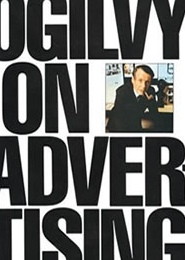
News from an Action release that their global research (taking in 10,000 subjects worldwide) has shown that an association with a charity or good cause is more likely to persuade consumers to buy a brand than links with sport, music, TV, film, gaming and the arts.
Respondents across ten global markets including the UK were quizzed on their lifestyle and product preference in a study to discover the links made between brands and categories.
A quarter of those surveyed stated that their buying decisions would be influenced by sponsorship by or a link with a “favoured property, such as a charity of celebrity”. Furthermore, of the top ten partnerships that would positively influence UK consumers eight were CSR (corporate social responsibility) issues or charity brands.
On the surface this appears interesting in the extreme and, perhaps, a sign of a real change in the way we as a consumer society are influenced – some of the more extreme amongst us may even welcome it as the beginning of the end for celebrity…certainly even the cautious amongst us would take it as a sign that we should be looking closely at our choices, as marketers, for brand ambassadors at the very least. But what else can we interpret from this survey and its results?
Well, one thing that we certainly should be thinking about is not making too much of it…
Yes, the results suggest a sea change in our perception as consumers of what is desirable – but is that change really there?
Consider first the essential nature of the central question asked; “Do you attach more significance to celebrity endorsement or the support of important real world issues?”
When phrased like that it’s hard to see how anyone with any wish to be seen in a good light will say, “well, actually it has to be celebrity, yes, I am that shallow.” The argument could be made that in all likelihood the response was on anonymous terms – but it’s still hard to imagine that people will admit, even to themselves only, that their view of the world around them sees celebrity more important than charity.
Secondly, and this time related to the actual content of the survey, a question of choice, namely; what choice were respondents given with selection of “favoured property…charity or celebrity”? Was there a free choice? That seems unlikely given the specific percentage results given in the Ogilvy release (not impossible but…). Was there a balanced choice of charities and celebrities? This seems more likely. If this is the case the next question must be – who did the choosing? What criteria were they working to?
The results could be skewed by any number of decisions made in the selection process – the inclusion of an unpopular celebrity or charity that cannot be ignored could significantly alter the overall results.
Indeed, without being party to the method of data selection and process behind the survey itself the results become difficult to interpret properly in any meaningful way.
We could go on – but these two central points, that of respondent awareness (it’s a long proven fact that people who know they’re being surveyed perform set tasks with more care and this is no doubt transferable to answering questions) and data selection/interpretation seem to make our argument clear enough.
Surveys and their results cannot be properly interpreted, nor any significant inference drawn, without access to both an explanation of the process and some investigation of the general psychology of the respondents.
This is why we at Hotcow make sure that when we do market research we know exactly what our clients want from the information and who we should be asking for a truly representative opinion.
External Hyperlink to source
